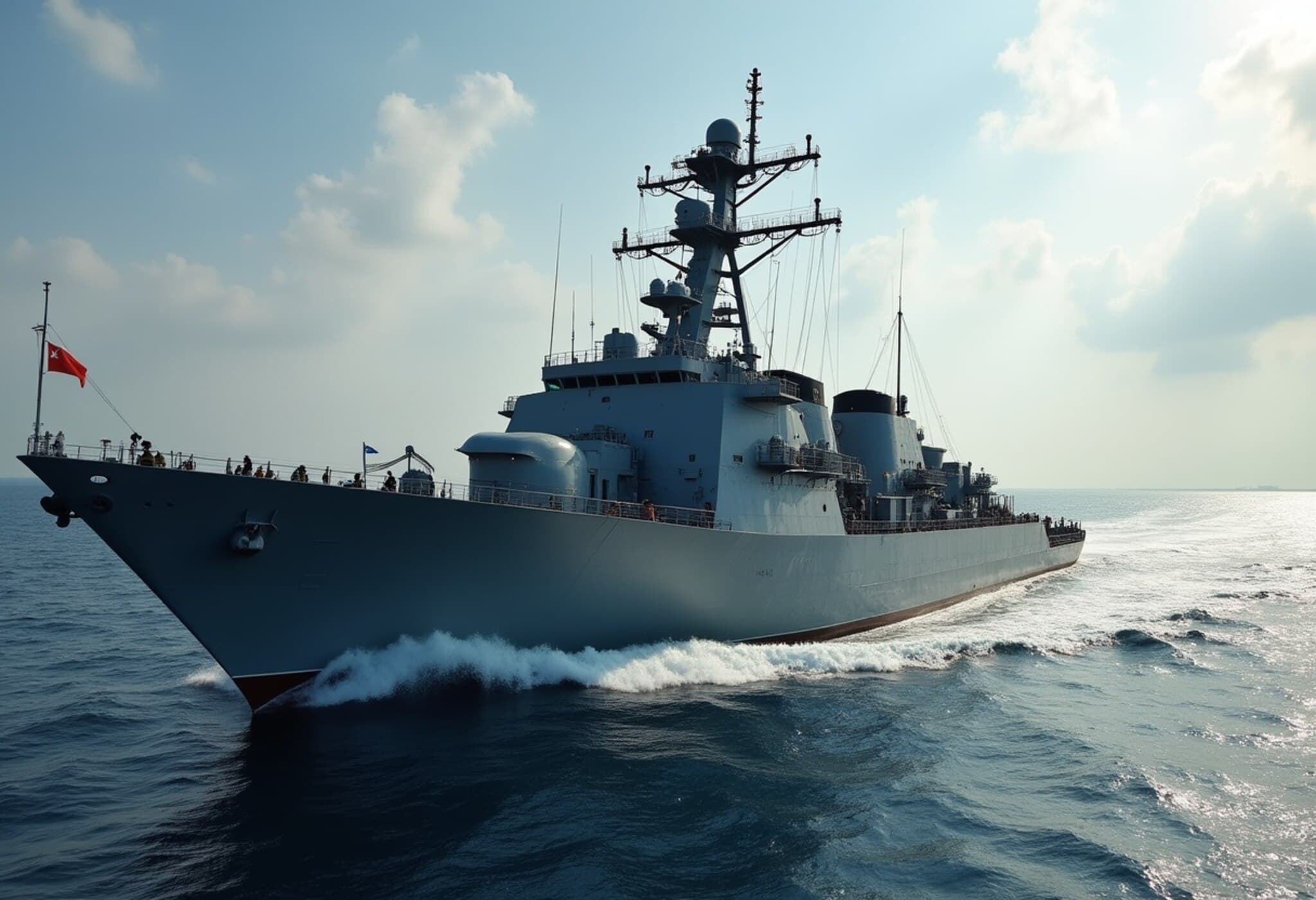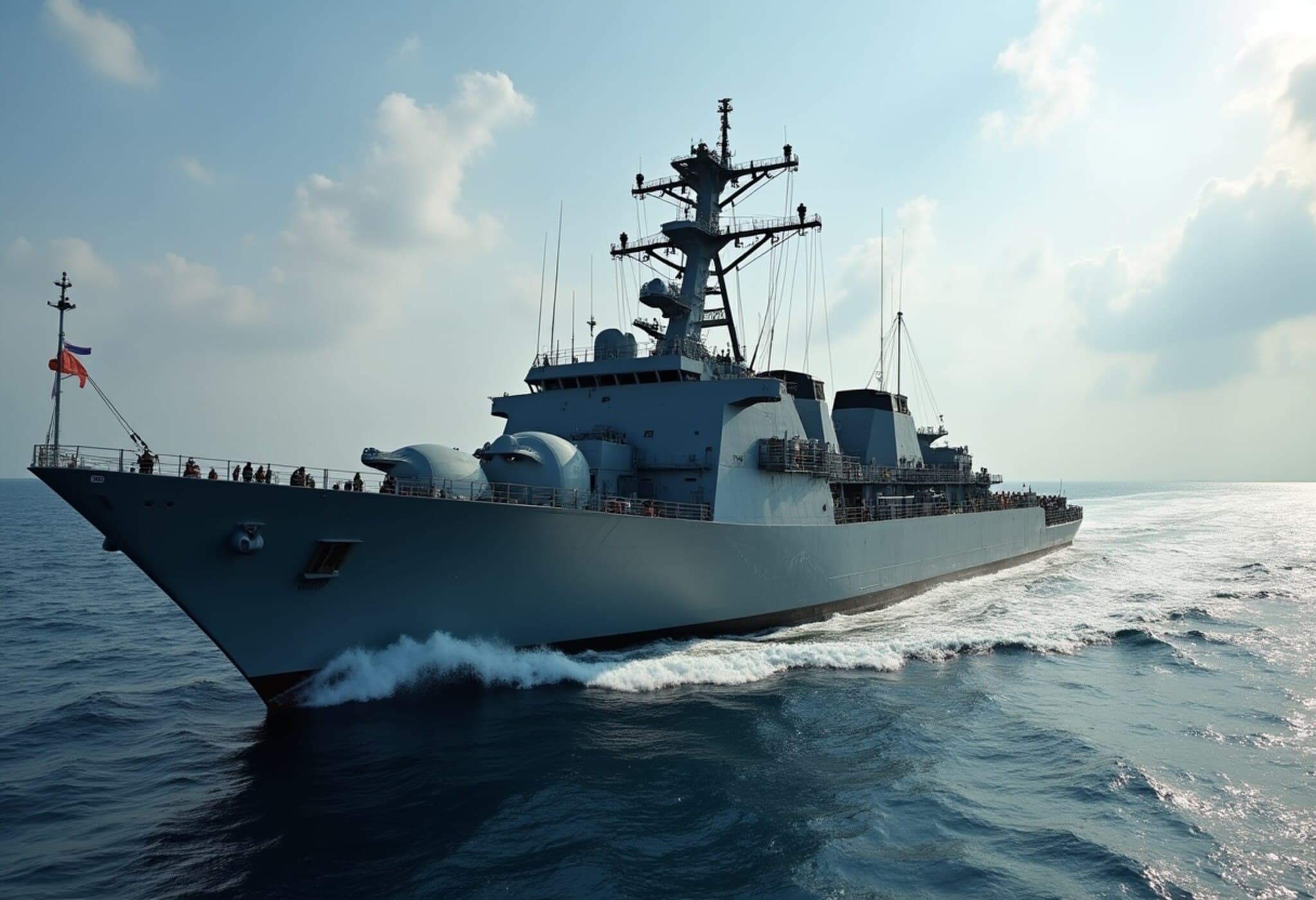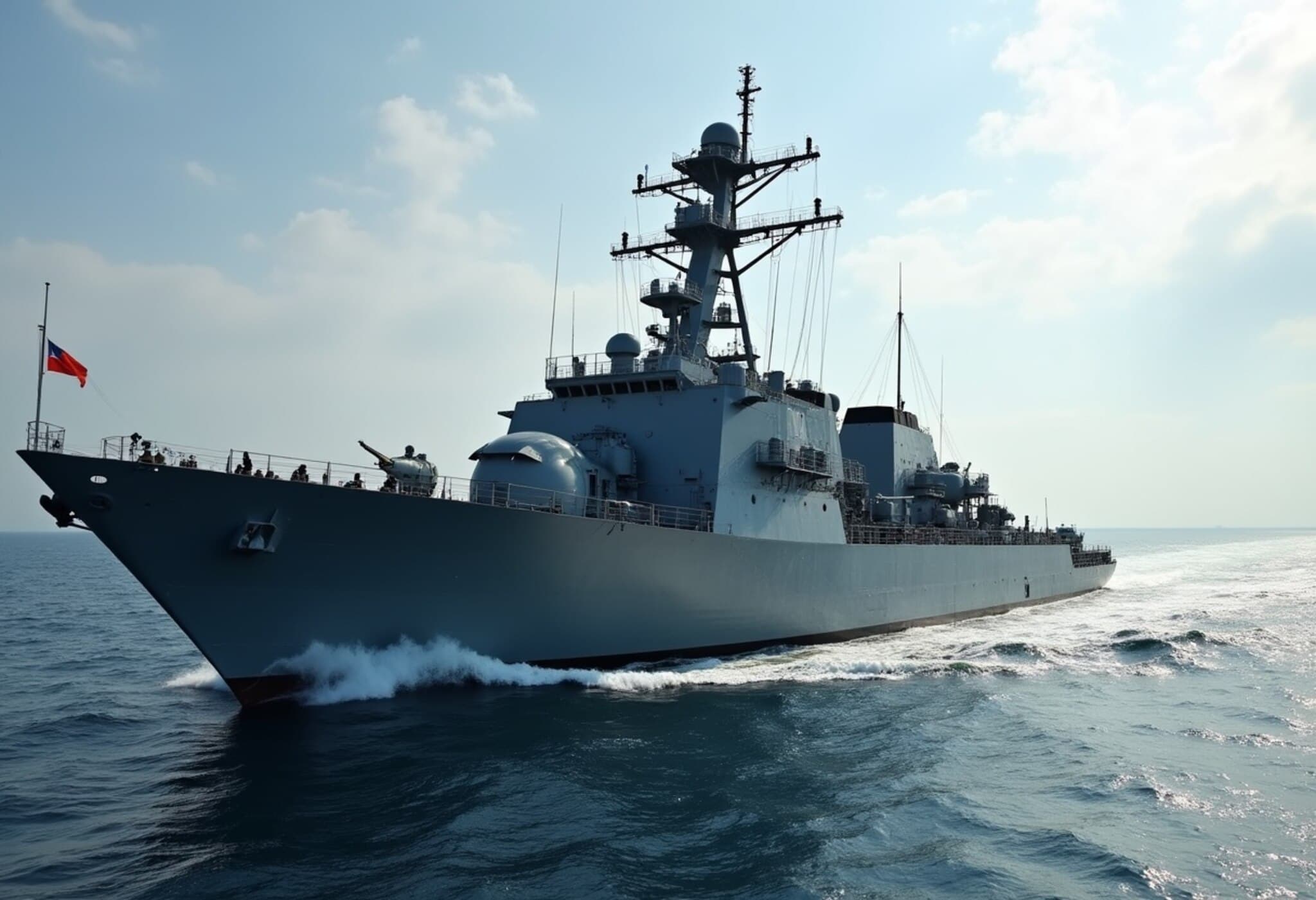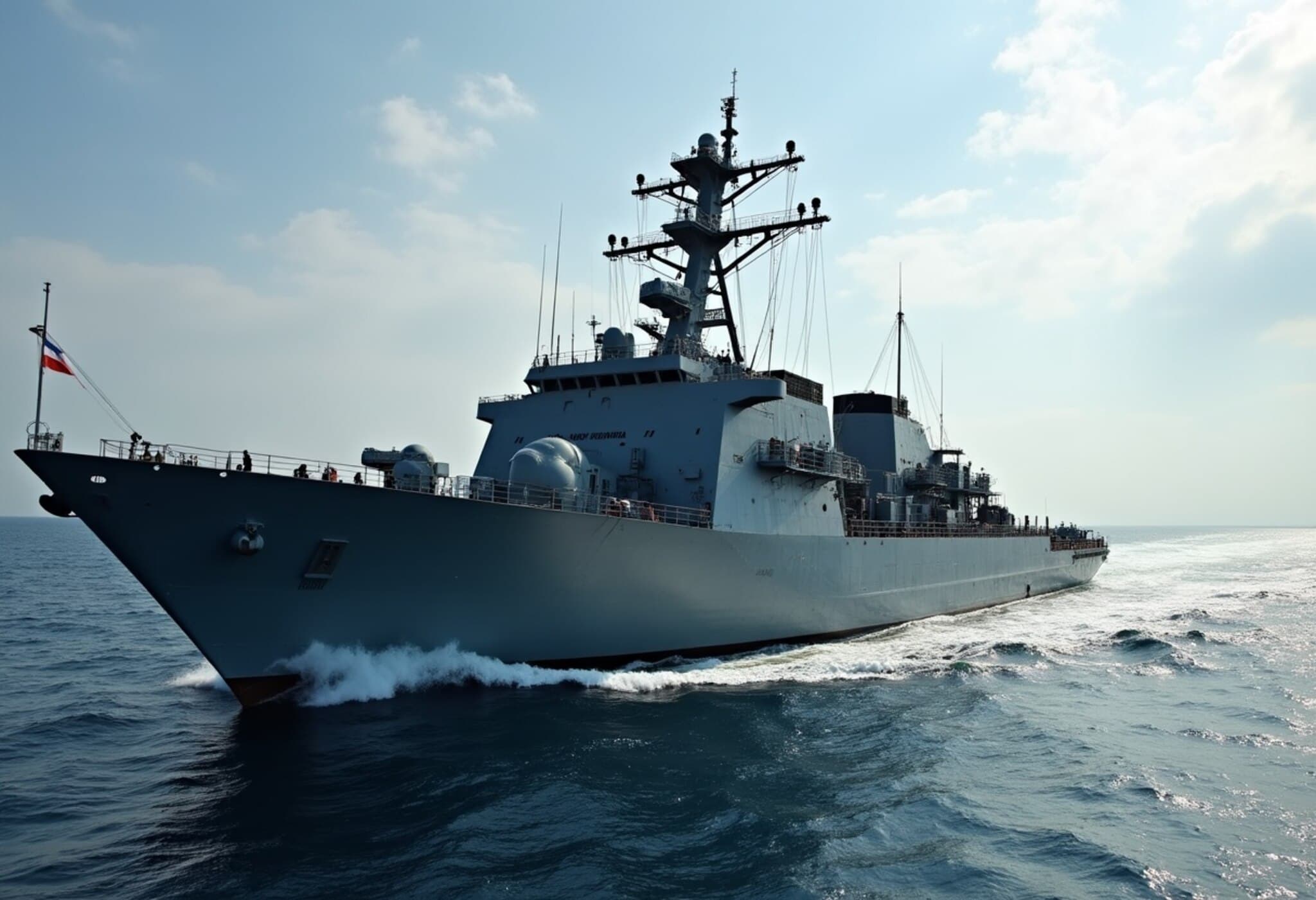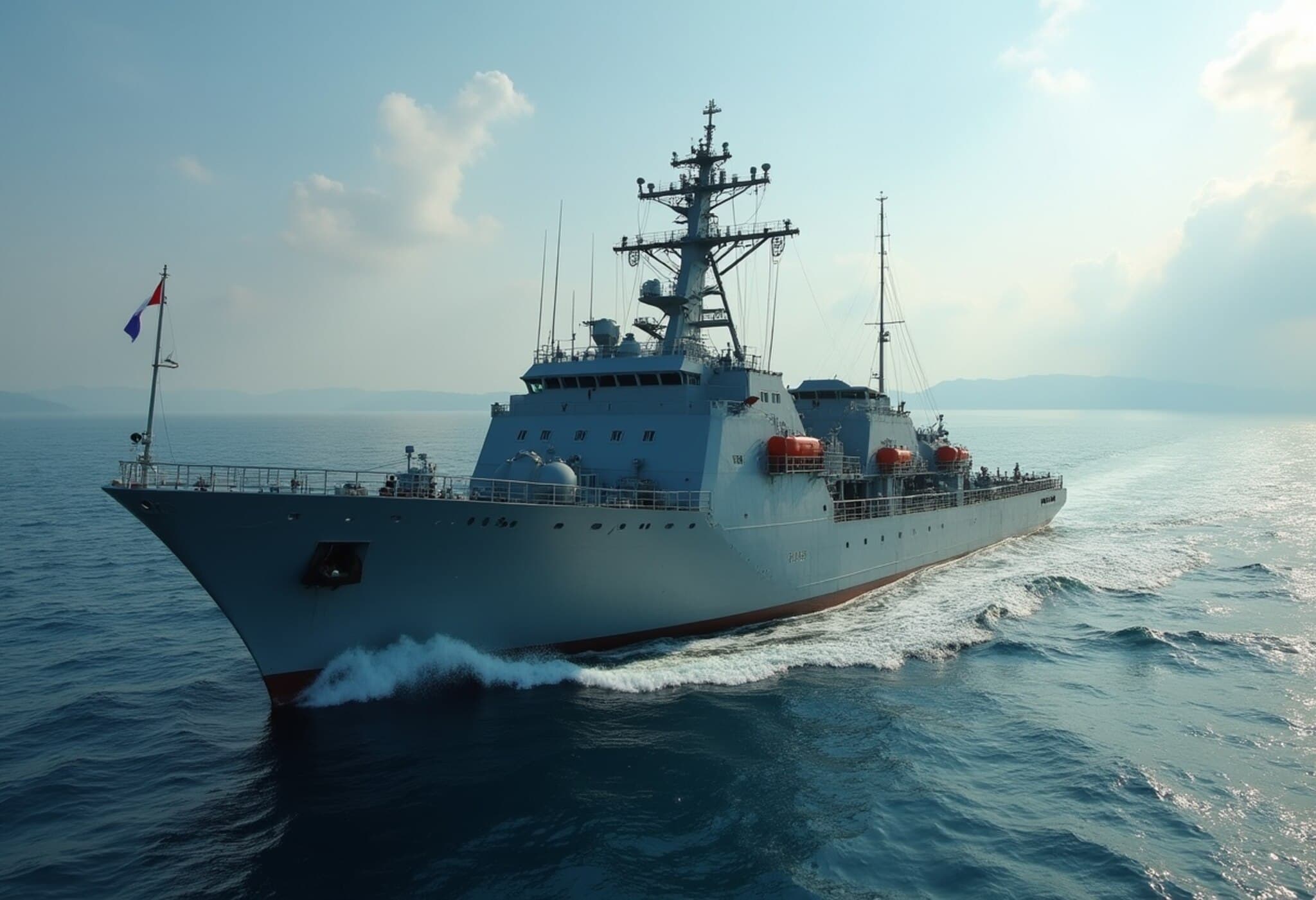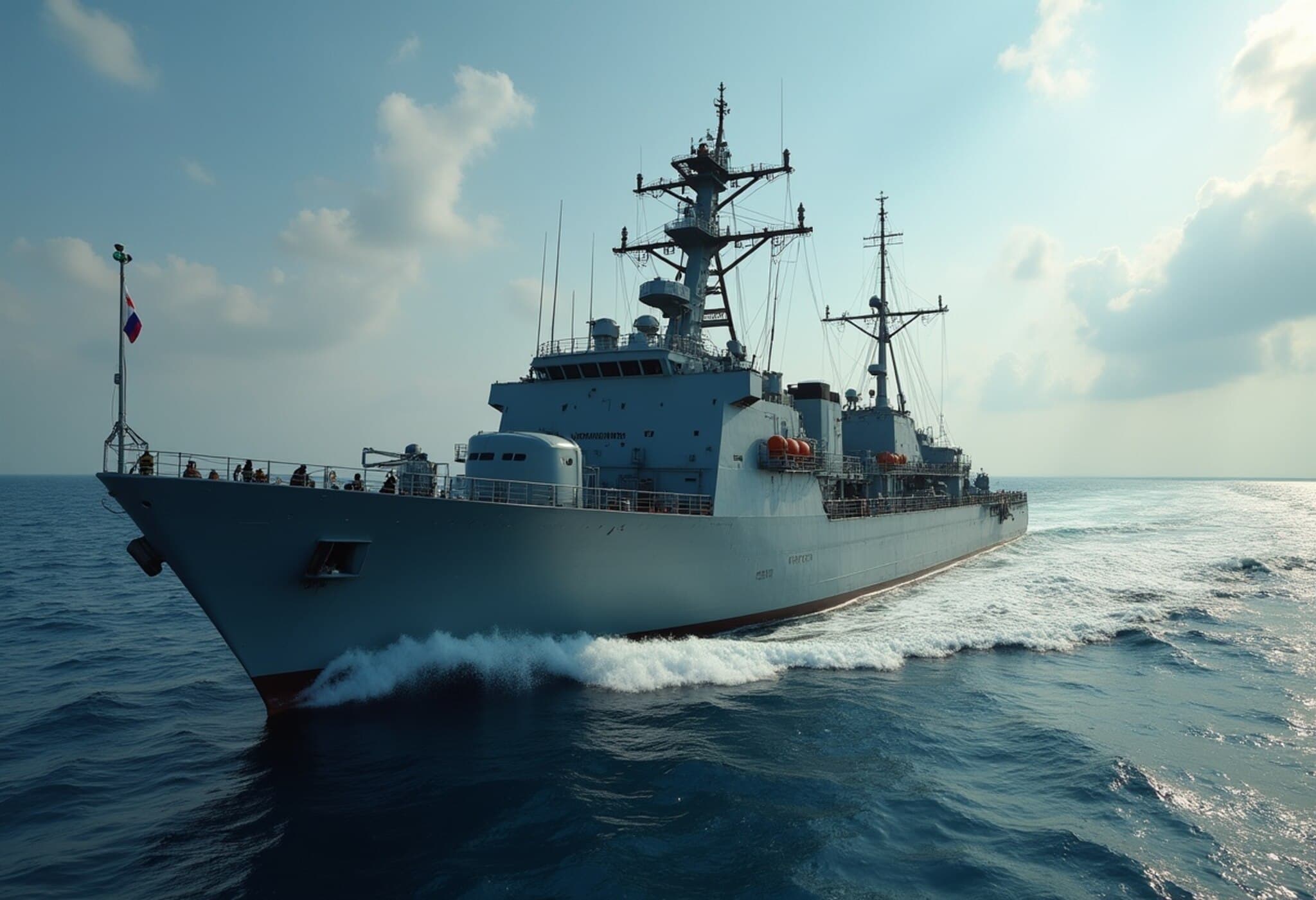China Reports 'Driving Away' U.S. Destroyer Close to Contested South China Sea Waters
In a fresh surge of maritime tensions in the South China Sea, China announced on Wednesday that it warned and "drove away" the U.S. Navy destroyer USS Higgins, which it claims entered its territorial waters near the disputed Scarborough Shoal without permission. The incident underscores the deepening rivalry in one of the world's busiest and most strategically sensitive shipping lanes.
Details of the Incident
According to a statement from China's Ministry of Foreign Affairs, the USS Higgins "illegally entered China’s territorial waters off Huangyan Island," the Chinese name for Scarborough Shoal. This move was described as a serious infringement on China’s sovereignty.
"The U.S. military’s actions not only violate international law and the basic norms of international relations but also severely undermine peace and stability in the South China Sea," the ministry added, as translated by CNBC.
Background of the Dispute
Scarborough Shoal has long been a flashpoint between China and the Philippines, with both nations staking claims. China asserts sovereignty over nearly the entire South China Sea via its controversial “nine-dash line” claim, which was invalidated by a 2016 tribunal ruling at The Hague. The Philippines, backed by international legal rulings, disputes this expansive claim, leading to repeated maritime confrontations.
The United States, while not a claimant, regularly conducts Freedom of Navigation Operations (FONOPs) to challenge what it views as excessive maritime claims and to uphold international maritime law.
Recent Escalations and Regional Ramifications
- Just a day before this latest incident, a Chinese warship collided with a Chinese coast guard vessel during a pursuit of a Philippine patrol boat near the same contested area.
- The Philippines has in recent years reported multiple aggressive encounters, including PH vessels being chased and subjected to laser attacks by Chinese forces, escalating fears of military escalation.
- President Ferdinand Marcos Jr. warned in May 2024 that any severe aggression near Scarborough Shoal could be interpreted as crossing a "red line" and potentially an act of war.
- The Mutual Defense Treaty between the U.S. and the Philippines obligates American forces to assist in case of an armed attack, adding another layer of complexity and risk to the regional security environment.
Expert Analysis: What Lies Ahead?
Maritime security expert Dr. Emily Zhang notes, "This incident reflects the ongoing strategic chess match in the South China Sea, where the U.S. seeks to assert freedom of navigation while China aggressively defends its claims. Each move risks inadvertent escalation, especially near hotspots like Scarborough Shoal."
U.S. Seventh Fleet has not yet commented on the event. Analysts warn that continued naval stand-offs may strain the already fragile U.S.-China relations, which have been further strained due to ongoing trade disputes and geopolitical rivalry.
For Southeast Asian nations, the persistent tensions jeopardize not just regional stability but also critical economic lifelines, given the South China Sea's role in global maritime trade.
Conclusion
This latest maritime encounter reminds the international community of the delicate balance of power in the Asia-Pacific. It raises urgent questions about how the involved parties will manage sovereignty claims while preventing conflict escalation in one of the world's most vital waterways.

